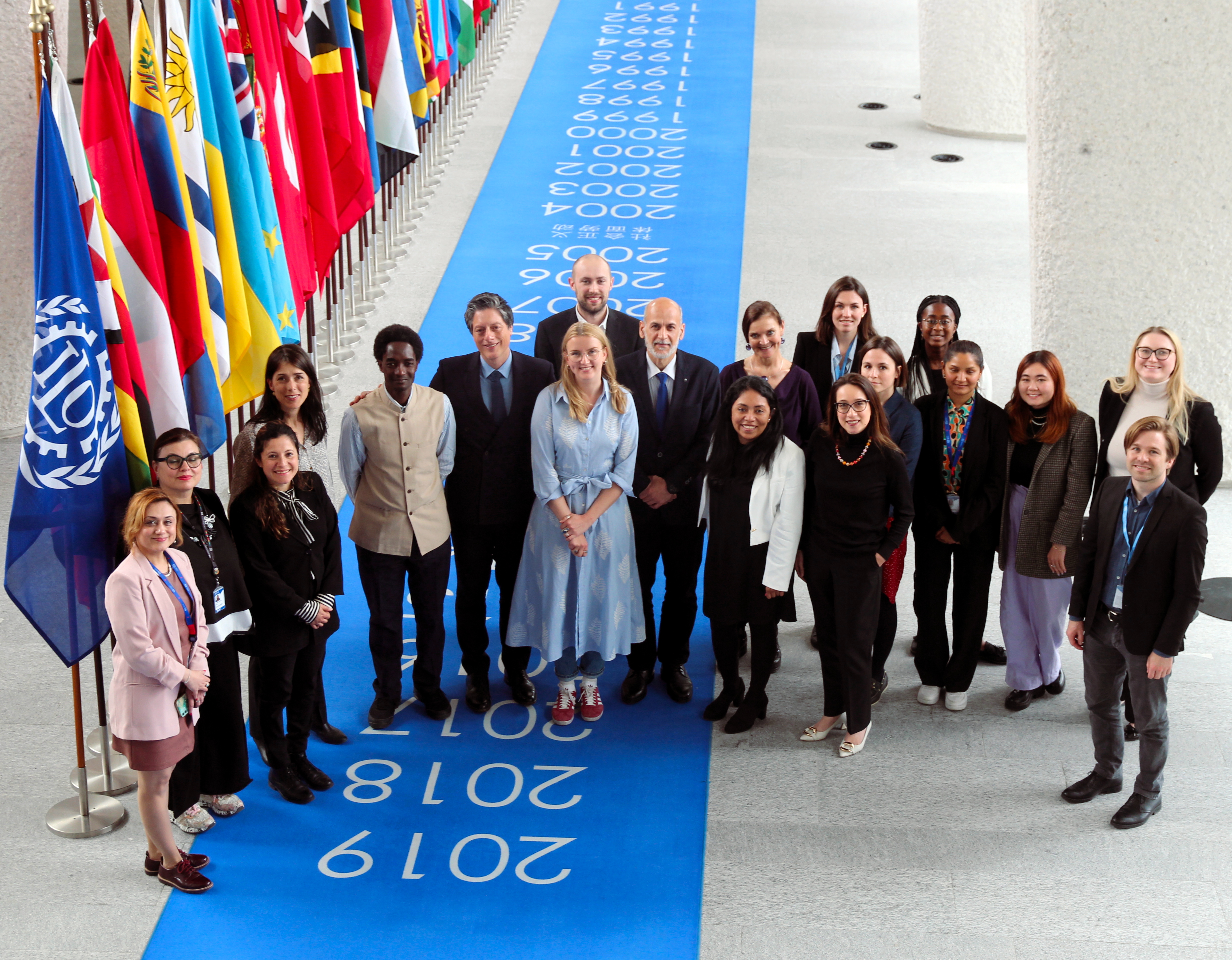EMG Nexus Dialogues on Sustainable Consumption and Production
Digitalization for Circular Economy and Green Jobs for Youth
The first nexus dialogue underscored the importance of collaboration, innovation, and policy coherence in realizing the full potential of digitalization as a catalyst for advancing the circular economy and creating green jobs for youth.

The nexus dialogue brought together experts from various UN agencies and sectors to share insights, strategies and collaborative approaches to tackle the intertwined challenges of a rapidly evolving digital landscape and the urgent need for environmental sustainability by promoting SCP patterns and circular economy.
The event featured vibrant discussions, thought-provoking presentations and innovative solutions for sustainable growth and jobs creation. Besides, key themes explored and discussed included the role of technology in advancing circularity, importance of the skills development and re (up) skilling measures for green and digital economies, the intersection of digital transformation and green jobs, and the imperative of inclusive and equitable opportunities for youth in green economy as response to triple-planetary crisis.
Key takeaways from the nexus dialogue
• Digital technologies for accelerating the shift to a circular economy: Participants recognized that digital technologies, including advanced science-based evidence and data analytics, supply-chain analysis and innovative design, can play a pivotal role in facilitating and sustaining the circular economy. Artificial Intelligence (AI) was highlighted as a promising tool for optimizing resource utilization, while blockchain technology was identified to enhance supply chain transparency and minimize waste. The importance of standardization and innovation emerged as common focus for collaboration among UN agencies, with a shared commitment to contribute to the Secretary-General's Global Digital Compact.
• Job opportunities in digitalization for circularity: The transition to a circular economy was identified as a catalyst for the emergence of new job opportunities, particularly for youth. Participants stressed the significance of nurturing skills for green and digital economies and promoting entrepreneurship that align with circular business models. However, it was acknowledged that this shift has the potential to rapidly reshape employment landscapes across sectors. Considering this, the Green Jobs for Youth Pact was presented as a promising initiative to facilitate a smooth and inclusive transition.
• Joint policy development for inclusion: Given the rapid pace of change driven by AI and other digital technologies and platforms, the urgent need for coordinated policymaking across the UN system and national governments was highlighted. Ensuring that no one is left behind in the transition to a circular economy requires collaborative and well-coordinated efforts, knowledge sharing and a collective commitment to address inequalities and promote inclusive and sustainable development in the digital age.
For further information, please refer to the consolidated file for the agenda and concept note.
The meeting report was developed by UNEP EMG and One Planet Network.